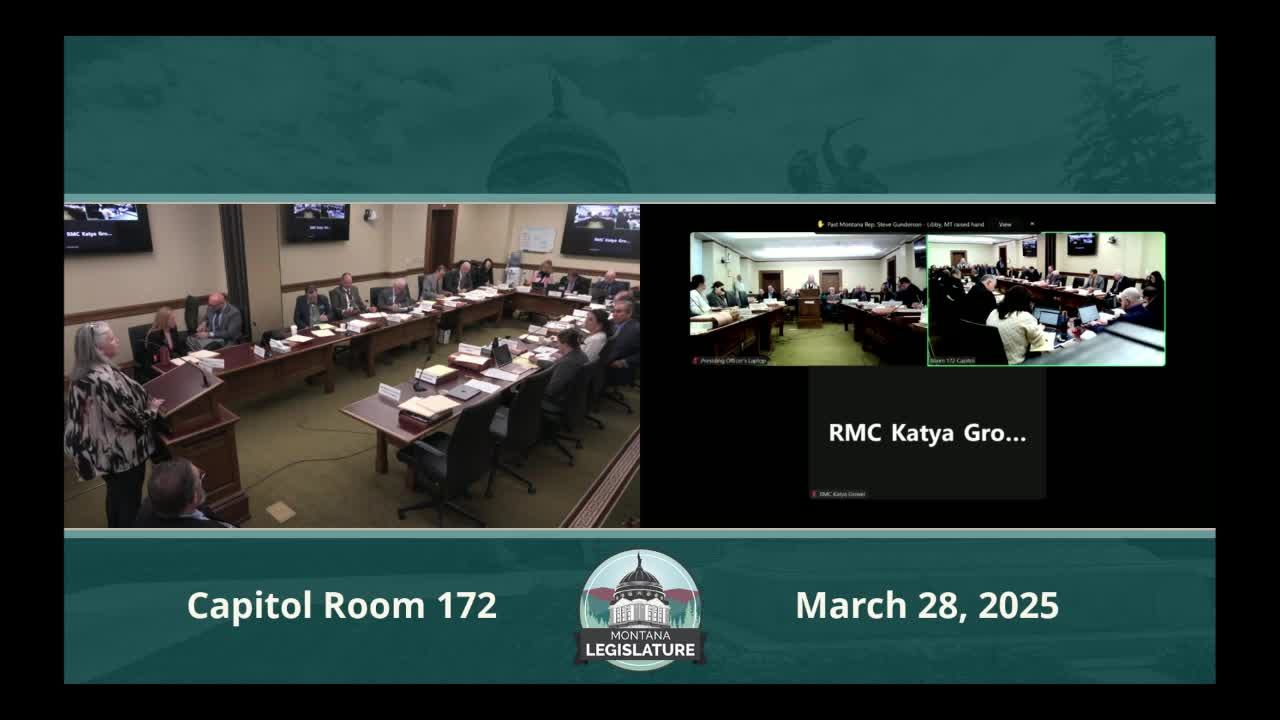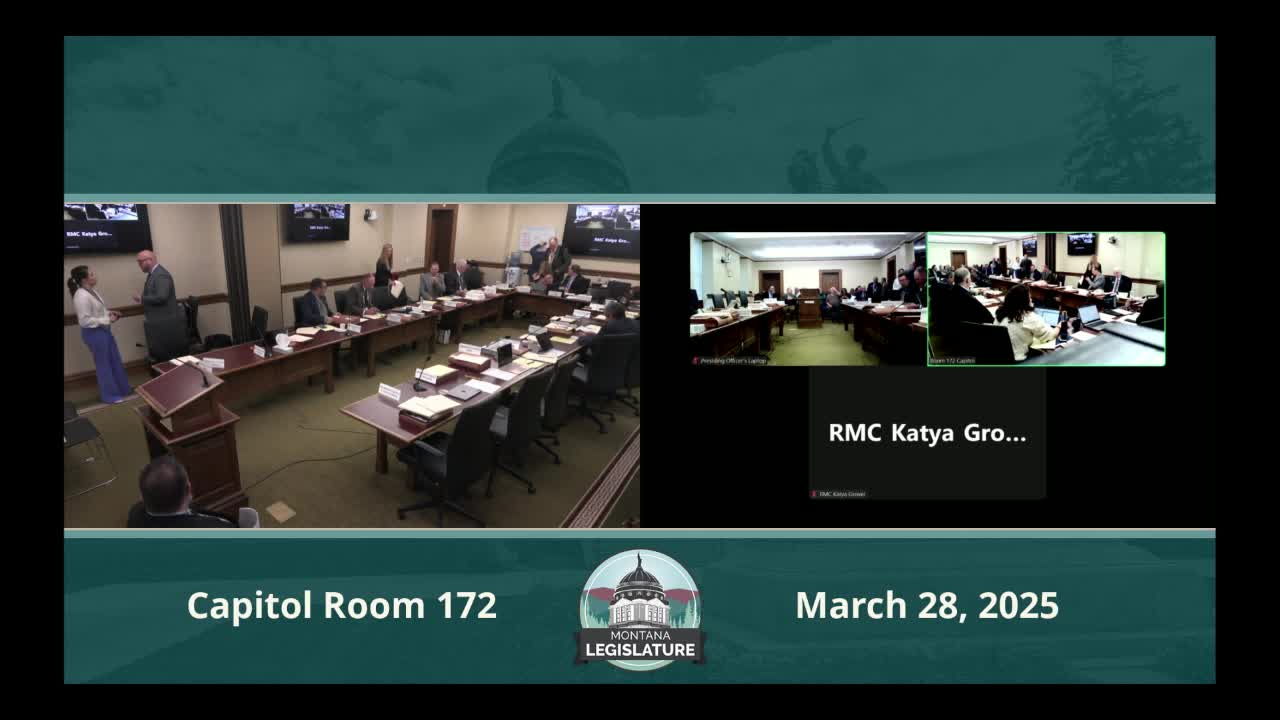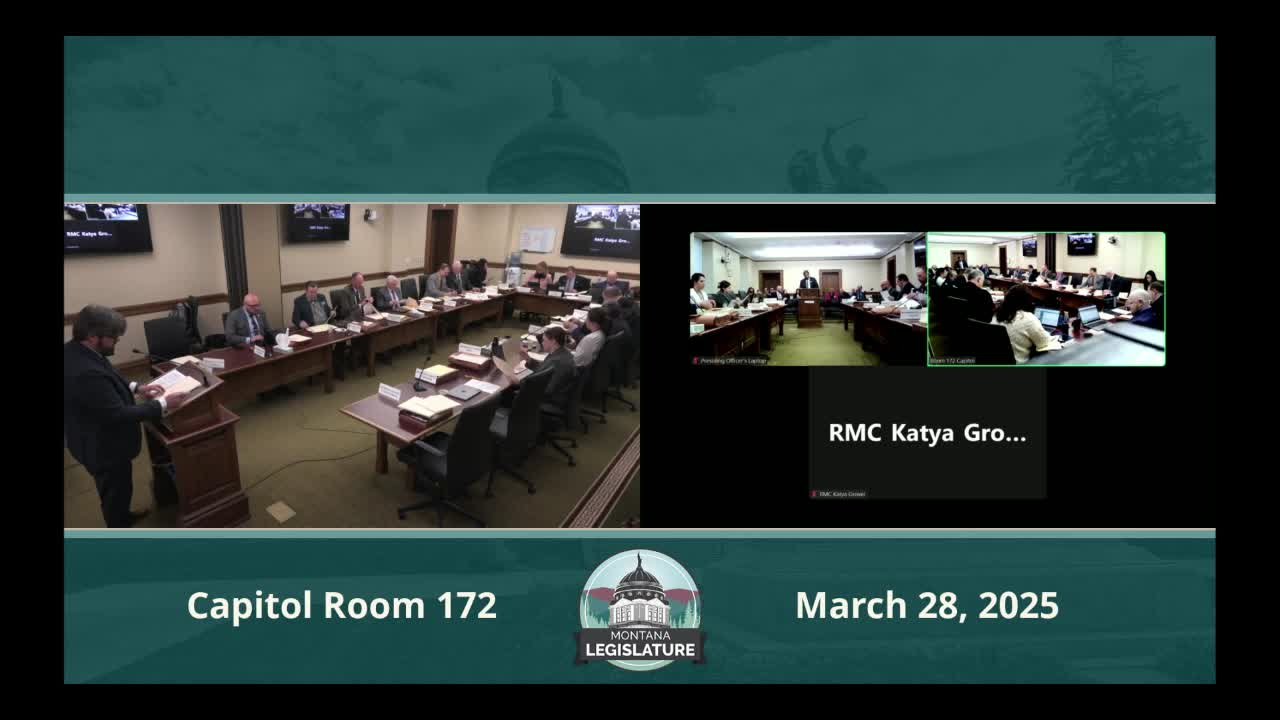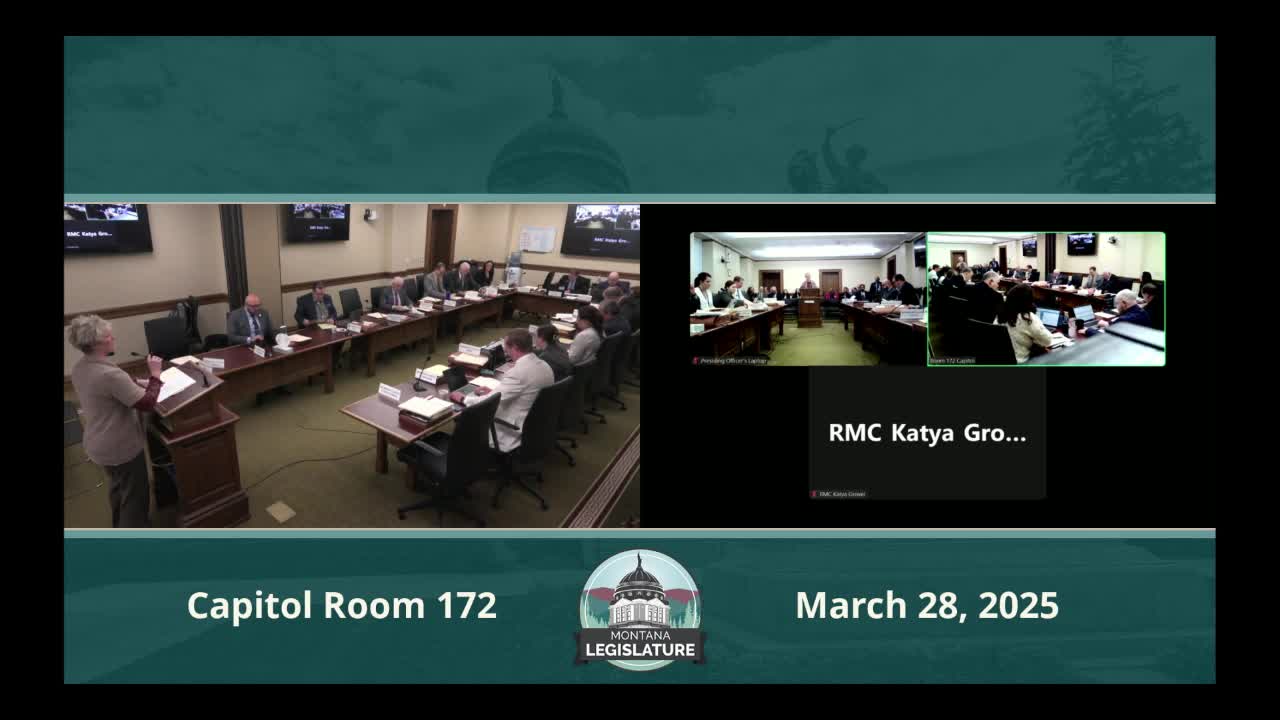Article not found
This article is no longer available. But don't worry—we've gathered other articles that discuss the same topic.

Committee hears bill to license community health workers; proponents cite workforce, opponents seek implementation details

Montana hearing on major bail-code overhaul draws supporters and strong opposition

Lawmakers weigh interim study to improve Montana access to federal grants for tribal and local governments

